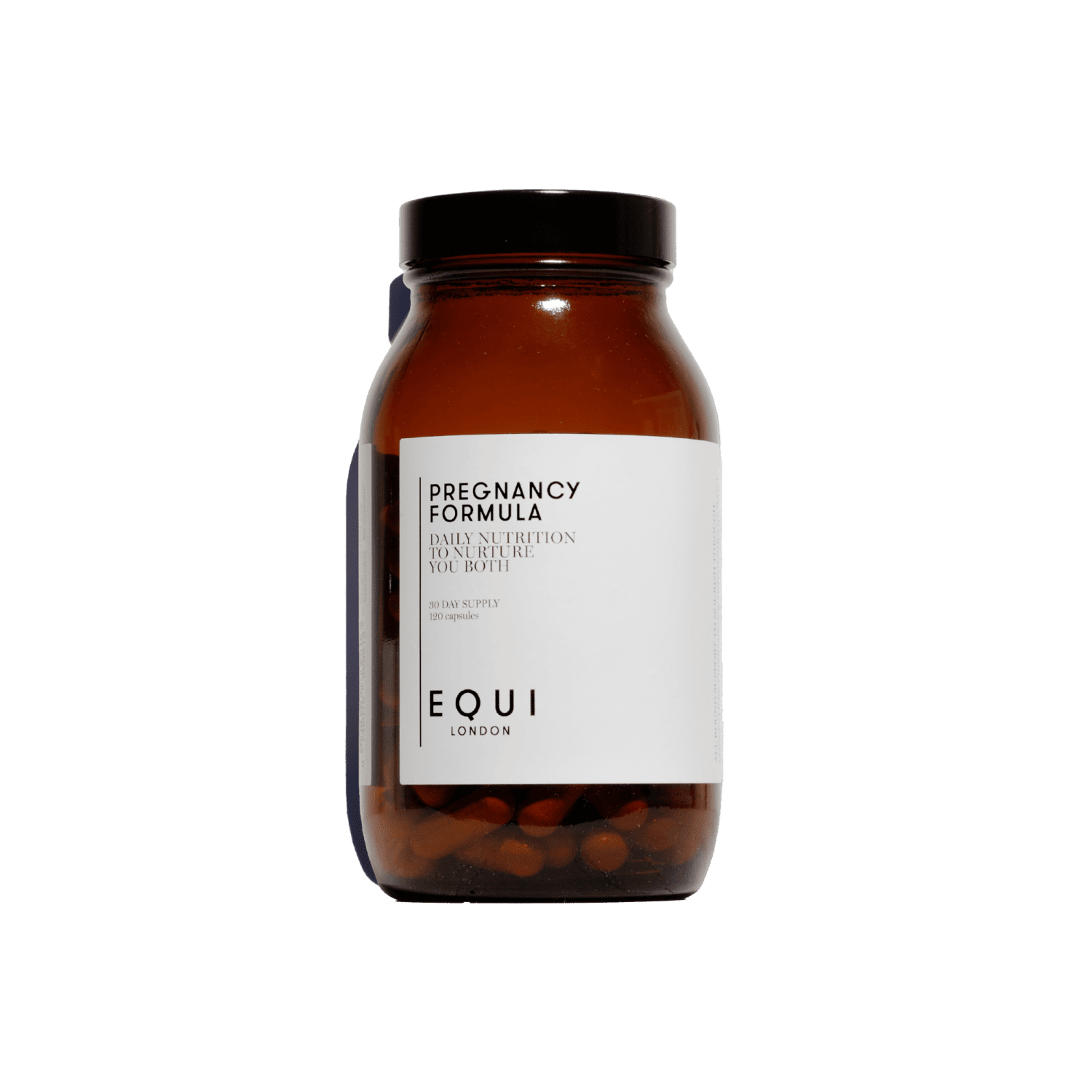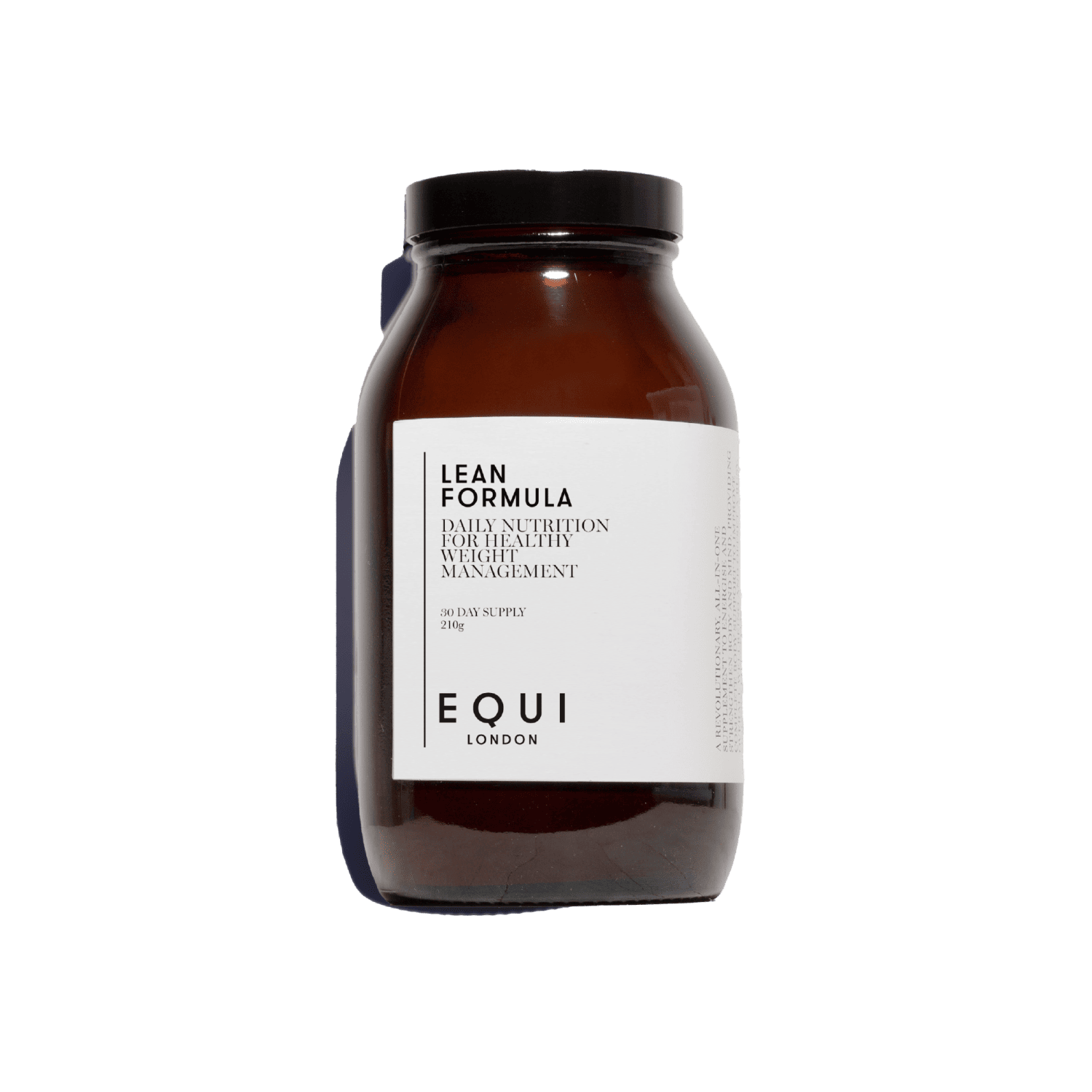The many science-based benefits of collagen supplements and why they deserve a place in any woman’s beauty regimen
With all the talk about this miracle protein, we wanted to dive in to explain more about the benefits of collagen supplements. Collagen is the most abundant protein in the body, accounting for as much as 30% of the total protein mass in the body and 80% in the skeleton (1). It’s responsible for maintaining healthy joints, skin health, bone and skin structure.
Whilst nearly 28 different types of collagens have been identified, collagen type I is the most common form found in skin, bone, teeth, tendon, ligaments, vascular ligature, and organs (2). Type II is present in cartilage whilst Type III is found in the skin, muscle and blood vessels, accounting for 20% of the total collagen concentration in the skin (3). Type IV is found within the layers of skin and helps to draw out impurities. New research has shown that Type V is present in the placenta.
Whilst we naturally produce collagen ourselves, this production does begin to decline from the age of around 25, which is when you may start to notice wrinkles and possibly some aches and pains. Modern diets no longer include good amounts of natural sources of collagen, which is found in foods like bone broth, animal skin, and organ meats. This is why we advocate adding some collagen in for skin supplementation.
You may have heard that ingesting collagen doesn’t make a difference to the body because we cant absorb it, however recent studies show that collagen type 1 peptides have a particularly high absorption rate (4), supporting its use as a supplement. Here we look at what the most recent research tells us in relation to the benefits of collagen supplementation, and find out why we add type 1 hydrolysed collagen to our Beauty Formula – shop it here.
Collagen Supplements and Skin Health
The most notable function of collagen is of course the role it plays in the skin. Young and healthy skin has a collagen content of more than 75%, accounting for as much as one third of all protein in the body. Specifically, collagen type I accounts for 80% of all skin collagen (3) which is why we have included this type in our Beauty Formula within GlowCutis®. This alone is one of the most prominent benefits of collagen supplements for all women we know.
A 2019 systematic review of the use of collagen for skin ageing found that supplementation increases skin elasticity, hydration, and collagen density (5). More recently, another study concluded that taking collagen powder for 90 days is effective in reducing skin ageing, by reducing wrinkles and improving skin elasticity and hydration (6). Whilst the evidence strongly supports collagen supplementation, we also know that lifestyle factors such as sun exposure, smoking, environmental pollution, excessive alcohol intake and nutrient deficiencies can speed up the decline of collagen in mature skin (7) and this is why it’s really important to consider addressing these things if you want to improve your skin.
It’s also why we recommend trying to increase nutrients vitamin C, zinc, and sulphur, all of which help to encourage the natural production of collagen in the skin. Interestingly, all of these are also depleted by those lifestyle factors. Knowing that it isn’t always easy to get a perfect diet, we created our Beauty Formula to help fill the gaps on the days where you don’t manage to eat your 8 portions of fruit/vegetables per day.
Collagen Supplementation and Bone Health
Collagen type I accounts for 90% of bone, and supplementation has even been found to contribute to bone production. Our bones are constantly breaking down and building up in a process known as ‘remodelling’, however as we age this process begins to slow down and become less efficient. Therefore, there may be some evidence for the use of collagen in preserving bone density, which declines naturally with ageing.
A small 2018 study to investigate the effect of collagen supplementation on bone mineral density came back with some interesting findings. They observed that in postmenopausal women, daily supplementation for 12 months increased density, which indicated an increase in bone formation and a reduction in bone degradation (8). A further study on bovine (beef) collagen in 2019 found similar evidence for the use of collagen supplementation to manage bone conditions (9). Whilst several other strategies preserve bone density including weight bearing exercise, reducing alcohol intake, and cessation of smoking, the benefits of collagen supplements alongside these additional lifestyle factors are clear.
Collagen & Joint Health
Collagen types I and II are the most important components of tendons, ligaments and cartilage (10). However, long-term stress on joints due to excessive training, inadequate recovery periods, incorrect techniques or movement may lead to tissue damage and joint pain. A recent study of physically active young adults with joint pain noted that there was a significant reduction in “pain during activity” after supplementing 5g of collagen for 3 months (11). From their research, they concluded that the collagen used in the study had a positive effect on knee joint pain during activity and that it may help to prevent chronic tissue damage. They saw that collagen accumulates in the cartilage tissue of the joint, which then stimulates tissue repair.
Collagen may also have some benefits in relation to building lean body mass. We know that protein intake may increase muscle mass so it makes sense that collagen (a type of protein), would have a similar effect. A study on women supplementing collagen alongside some resistance training for 12 weeks, found that they reduced their body fat percentage more than the control group in the study. The positive impact that collagen supplementation had on their body composition resulted in improved strength (12).
Collagen and Gut Health
More recently, studies have highlighted the role that collagen plays in supporting gut health. Marine collagen was shown to support the intestinal lining in patients of inflammatory bowel disease (IBD). The gut wall is made up of a very thin lining and in inflammatory conditions, this can become “leaky”. Collagen was shown to suppress the inflammatory damage in IBD (13), supporting its use in maintaining the integrity of the gut lining. In addition to this, a 2020 study showed that collagen intake was strongly correlated with changes to the gut microbiota with an increase in beneficial Lactobacillus, which is a “friendly” gut bacterium (14). This study also concluded that high collagen intake should be avoided, which makes way for a less is more approach.
Collagen for Hair and Nails
Last but not least, collagen and keratin are the two main protein components of nails. Whilst there still needs to be more research to support the use of collagen supplementation to improve nail strength, one study saw fantastic improvements. The majority of the participants (88%) in this 2017 study experienced an improvement after just 4 weeks (15). This study demonstrated the benefits of collagen supplements (taken daily) via increased nail growth, improved brittle nails, and a decrease in frequency of broken nails.
Collagen for General Wellbeing
Aside from being one of the best supplements for skin, among other positive attributes, evidence suggests that the health benefits of collagen supplementation support the use of incorporating it in the daily diet. As a functional food, collagen demonstrates important properties with a positive impact on health, particularly skin, joint, and bone health. We’ve seen that supplementation may have a positive effect not only on how we look, but also on how we might perform in the gym, by protecting joints and cartilage, whilst supporting lean body mass. The most effective amounts of collagen vary from 2.5-15g daily intake (16), and it should be consumed alongside a varied diet that includes good quality protein sources such as organic lean poultry, fish, tofu, beans, nuts, and seeds.
Here at Equi, we source our GlowCutis® collagen from marine collagen, derived from sustainable fish. Marine collagen has great bioavailability, meaning it's efficiently absorbed and is widely considered to be superior to bovine (beef) collagen. Marine collagen has low inflammatory effects and much lower toxins present (17). In fact, a study on the use of marine-collagen supplementation alongside antioxidants saw improvements in skin structure, elasticity and collagen levels (18). Antioxidants include the likes of vitamin C, resveratrol and zinc all of which are included in Beauty Formula.
Is There Anyone Collagen May Not Be Suitable For?
Marine collagen is not suitable for anyone with a seafood or fish allergy. Those with severe IBS, or other diagnosed conditions should check with their doctor first.
Words by Registered Nutritional Therapist, female health specialist and Equi fan Jennifer Walpole
Scientific References
- Ricard-Blum, S., (2010). ‘The Collagen Family’. Cold Spring Harbor Perspectives in Biology, 3(1), pp.a004978-a004978.
- León-López, A., Morales-Peñaloza, A., Martínez-Juárez, V., Vargas-Torres, A., Zeugolis, D. and Aguirre-Álvarez, G., (2019). ‘Hydrolyzed Collagen—Sources and Applications’. Molecules, 24(22), p.4031.
- Cole, M., Quan, T., Voorhees, J. and Fisher, G., (2018). ‘Extracellular matrix regulation of fibroblast function: redefining our perspective on skin aging’. Journal of Cell Communication and Signaling, 12(1), pp.35-43.
- Wang, L., Wang, Q., Liang, Q., He, Y., Wang, Z., He, S., Xu, J. and Ma, H., (2014). ‘Determination of bioavailability and identification of collagen peptide in blood after oral ingestion of gelatin’. Journal of the Science of Food and Agriculture, 95(13), pp.2712-2717.
- Choi, F.D., Sung, C.T., Jahasz, M.L.W., Mesinkovsk, N.A. (2019). ‘Oral Collagen Supplementation: A systemic Review of Dermatological Applications’. Journal of Drugs in Dermatology. 18(1), pp. 9-16.
- Miranda, R., Weimer, P. and Rossi, R., (2021). ‘Effects of hydrolyzed collagen supplementation on skin aging: a systematic review and meta‐analysis’. International Journal of Dermatology,.
- Krutmann, J., Bouloc, A., Sore, G., Bernard, B. and Passeron, T., (2017). ‘The skin aging exposome’. Journal of Dermatological Science, 85(3), pp.152-161.
- König, D., Oesser, S., Scharla, S., Zdzieblik, D. and Gollhofer, A., (2018). ‘Specific Collagen Peptides Improve Bone Mineral Density and Bone Markers in Postmenopausal Women—A Randomized Controlled Study’. Nutrients, 10(1), p.97.
- Wauquier, F., Daneault, A., Granel, H., Prawitt, J., Fabien Soulé, V., Berger, J., Pereira, B., Guicheux, J., Rochefort, G., Meunier, N., Blot, A. and Wittrant, Y., (2019). ‘Human Enriched Serum Following Hydrolysed Collagen Absorption Modulates Bone Cell Activity: from Bedside to Bench and Vice Versa’. Nutrients, 11(6), p.1249.
- Gelse, K., (2003). ‘Collagens—structure, function, and biosynthesis’. Advanced Drug Delivery Reviews, 55(12), pp.1531-1546.
- Zdzieblik, D., Brame, J., Oesser, S., Gollhofer, A. and König, D., (2021). ‘The Influence of Specific Bioactive Collagen Peptides on Knee Joint Discomfort in Young Physically Active Adults: A Randomized Controlled Trial’. Nutrients, 13(2), p.523.
- Jendricke, P., Centner, C., Zdzieblik, D., Gollhofer, A. and König, D., (2019). ‘Specific Collagen Peptides in Combination with Resistance Training Improve Body Composition and Regional Muscle Strength in Premenopausal Women: A Randomized Controlled Trial’. Nutrients, 11(4), p.892.
- Chen, Q., Chen, O., Martins, I., Hou, H., Zhao, X., Blumberg, J. and Li, B., (2017). ‘Collagen peptides ameliorate intestinal epithelial barrier dysfunction in immunostimulatory Caco-2 cell monolayers via enhancing tight junctions’. Food & Function, 8(3), pp.1144-1151.
- Mei, F., Duan, Z., Chen, M., Lu, J., Zhao, M., Li, L., Shen, X., Xia, G. and Chen, S., (2020). ‘Effect of a high-collagen peptide diet on the gut microbiota and short-chain fatty acid metabolism’. Journal of Functional Foods, 75, p.104278.
- Hexsel, D., Zague, V., Schunck, M., Siega, C., Camozzato, F. and Oesser, S., (2017). ‘Oral supplementation with specific bioactive collagen peptides improves nail growth and reduces symptoms of brittle nails’. Journal of Cosmetic Dermatology, 16(4), pp.520-526.
- Paul, C., Leser, S. and Oesser, S., (2019). ‘Significant Amounts of Functional Collagen Peptides Can Be Incorporated in the Diet While Maintaining Indispensable Amino Acid Balance’. Nutrients, 11(5), p.1079.
- Avila Rodríguez, M., Rodríguez Barroso, L. and Sánchez, M., (2017). ‘Collagen: A review on its sources and potential cosmetic applications’. Journal of Cosmetic Dermatology, 17(1), pp.20-26.
- De Luca, C., Mikhal’chik, E., Suprun, M., Papacharalambous, M., Truhanov, A. and Korkina, L., (2016). ‘Skin Antiageing and Systemic Redox Effects of Supplementation with Marine Collagen Peptides and Plant-Derived Antioxidants: A Single-Blind Case-Control Clinical Study’. Oxidative Medicine and Cellular Longevity, 2016, pp.1-14.
Disclaimer: Certain supplements are used for different reasons and a one-size-fits-all approach shouldn’t be adopted. In addition, pregnant women and anyone on medication should always consult a doctor before embarking on a supplements programme. As with all articles on www.equilondon.com, this is no substitution for individual medical or nutritional advice.




